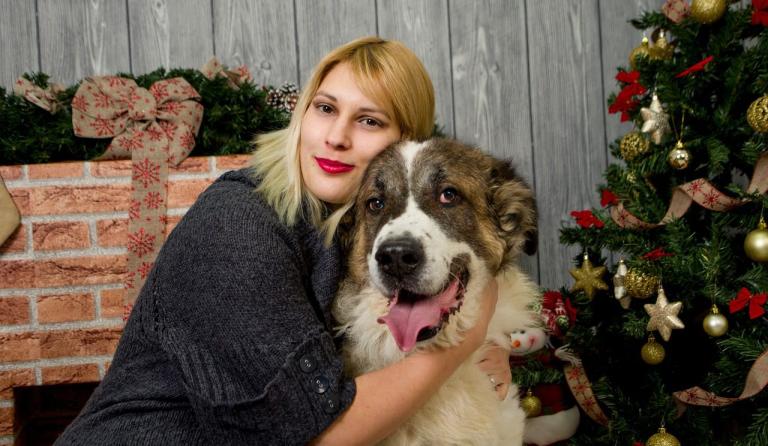 It begins at Halloween. All that leftover candy! “Well, I have to finish it up. Just a piece here and there.” Then comes Thanksgiving with all those desserts and side dishes. It’s a feast meant to be enjoyed! And now Christmas is upon us and you wonder, “How am I going to make it through the holiday season without gaining a lot of weight?”
It begins at Halloween. All that leftover candy! “Well, I have to finish it up. Just a piece here and there.” Then comes Thanksgiving with all those desserts and side dishes. It’s a feast meant to be enjoyed! And now Christmas is upon us and you wonder, “How am I going to make it through the holiday season without gaining a lot of weight?”
Weight gain is a real concern but the popular notion that most people gain between 5-7 pounds just isn’t true. Truth is that most of us will gain about a pound.
You might be thinking, “Well that is a relief,” but the problem is that we tend to keep that pound and it accumulates through the years. According to the National Institutes of Health, that extra pound a year may be a contributor towards obesity. So, don’t go diving into the desserts with abandon just yet!
One way to prevent holiday weight gain is to think about what it takes to gain a pound. You must consume an extra 3500 calories and basically overeat without any corrective measures. So, here are a few simple tips that can help avoid holiday weight gain:
1) Drink water instead of soda or high calorie drinks. Cut down on those peppermint mochas filled with sugar and fat. And definitely watch the alcohol consumption. Force yourself to drink water at most occasions.
2) Stop eating after one serving. As tempting as it is, don’t gorge yourself. Restrained eating is something we all have to learn given the abundance of foods and goodies this time of year. If you can take a bite or two of something and then stop, you cut the calories and enjoy the goodie! Also, say NO to second helpings. Eat slowly and give your brain and stomach time to communicate that you are full.
3) Avoid stress eating by doing non-food related activities. This is probably the biggest culprit of weight gain over the holidays. I wrote several books addressing stress and emotional eating. Thus, pay attention to your stress levels and determine to de-stress without using food, e.g., take a walk, relax with a book, etc. Recognize your stress but ahead of time have a list of de-stressors that don’t include food or alcohol.
4) Exercise if you eat a heavy meal. Research shows that there is benefit to exercise two hours after you have indulged. So if you overeat, hit the exercise bike and get active. A 10-minute brisk walk gives huge benefit. Take a bike ride in warm climates, go ice skating or cross-country skiing in cold ones. Take advantage of the outdoors for the Vitamin D you get from the sunshine as well.
5) Don’t go hungry to parties or events. If you do go hungry, you will overeat. So, drink a full glass of water, eat a small piece of fruit and take the edge off your appetite. This will help you pace yourself at events and be more restrained at eating.
6) At events with food, park yourself close to a low-cal party item. I know, how boring is this strategy! But if you nervously eat during holiday get togethers, you are likely to gain weight. So find a low-calorie item at an event and munch away, e.g., carrots and hummus versus the Christmas cookie tray. If you are asked to bring an item, bring a low calorie one to insure there are options for you to select.
7) Get good sleep. Fatigue makes you want to eat. When you don’t sleep, the hormone ghrelin rises. The rise in that hormone makes you hungry. Consequently, you will feel hungry even when you are not. Thus, lack of sleep sets you up to overeat. Seven to nine hours a night helps fight overeating. Both sleep and exercise work against overeating. It’s one of the best prescriptions for weight loss you will ever get. Get sleep, stop weight gain.


